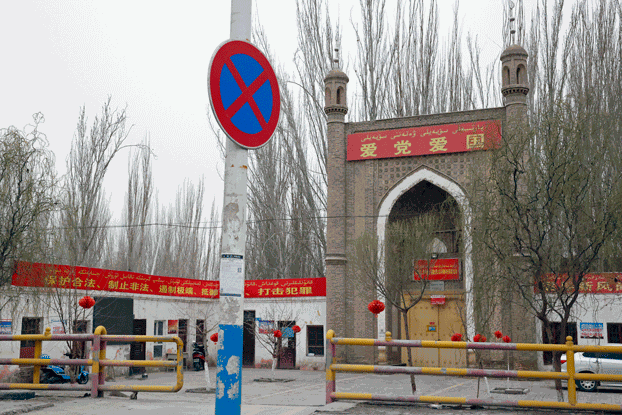Biden unveils US Info-Pacific economic plan after summits in Japan, South Korea
U.S. President Joe Biden wound up his visit to South Korea and Japan Monday with the announcement of the Indo-Pacific Economic Framework for Prosperity (IPEF), drawing more Southeast Asian involvement than previously anticipated. A statement by the White House said the U.S.-led regional economic initiative includes a dozen initial partners: Australia, Brunei, India, Indonesia, Japan, Republic of Korea, Malaysia, New Zealand, the Philippines, Singapore, Thailand, and Vietnam; together representing 40% of the world’s GDP. Earlier this month, diplomatic sources said that only two of the 10 members of the Association of Southeast Asian Nations (ASEAN) – Singapore and the Philippines – were expected to be among the initial countries joining negotiations under IPEF. One of the reasons for hesitancy is the U.S. Indo-Pacific plans are considered to be designed to counter China’s rising influence in the region, and ASEAN countries, especially small- and medium-sized, may wish to stay neutral. It appears that the situation has changed after the special U.S.-ASEAN summit in Washington in mid-May, with Brunei, Malaysia, Thailand and Vietnam also signing up. “The U.S. is finally re-engaging economically in the Indo-Pacific region,” said Norah Huang, associate research fellow at Prospect Foundation, a Taiwanese think tank. “The delay says there have been difficulties of the political climate back home and in this part of the world,” she said. Indo-Pacific economic power Details remain vague but it is understood that IPEF is not a free-trade agreement, but an economic cooperation seeking to establish trade rules across “four pillars” – trade resiliency, infrastructure, decarbonization and anti-corruption. The White House said it will “enable the United States and our allies to decide on rules of the road that ensure American workers, small businesses, and ranchers can compete in the Indo-Pacific.” With U.S. direct investment in the region totaled more than U.S. $969 billion in 2020, the U.S. “is an Indo-Pacific economic power, and expanding U.S. economic leadership in the region is good for American workers and businesses — as well as for the people of the region.” China has been critical of the U.S. involvement in the region. On Sunday, Chinese Foreign Minister Wang Yi said “the so-called ‘Indo-Pacific Strategy’ is bound to fail.” Speaking in Guangzhou after talks with visiting Pakistani Foreign Minister Bilawal Bhutto Zardari. Wang said the strategy “is causing more and more vigilance and concern” because it is “attempting to erase the name “Asia-Pacific” and the effective regional cooperation architecture in the region.” IPEF “should promote openness and cooperation instead of creating geopolitical confrontation,” Wang said. The U.S. is “politicizing, weaponizing and ideologizing economic issues and using economic means to coerce regional countries to choose sides between China and the United States,” according to the Chinese Foreign Minister. Regional reaction Regional economic powers Singapore and Malaysia were the first to welcome the IPEF. Malaysian International Trade and Industry Minister Mohamed Azmin Ali tweeted on Monday that IPEF “serves as an impetus for economic diplomacy between USA and the Indo-Pacific region.” “I am optimistic that this cooperation acknowledges that our economic policy interests in the region are intertwined, and deepening economic engagement among partners is crucial for continued growth, peace, and prosperity.” Singapore Prime Minister Lee Hsien Loong last week said that he encouraged more ASEAN participation in the IPEF which he said “needs to be inclusive and provide tangible benefits.” “To get India and Indonesia signed up will be important to up the game and could serve as catalyst for hesitant actors to come off fence,” said Norah Huang from the Taiwanese Prospect Foundation. Staunch U.S. allies South Korea and Japan, which President Biden has visited since Saturday, both supported the IPEF as “they clearly support any U.S. engagement within the region,” said Stephen Nagy, senior associate professor at the Department of Politics and International Studies, International Christian University in Tokyo. Before the IPEF launch, Biden held a meeting with the Japanese Prime Minister Fumio Kishida, their first formal face-to-face. Quad meeting On Tuesday, the U.S. President will attend a summit of the Quadrilateral Security Dialogue, or Quad, with leaders of Japan, India and Australia. The meeting will “focus on a rules-based order, enhancing infrastructure and connectivity in the region and in general, providing public goods to the broader region,” said Nagy. “The leaders will also discuss security in the maritime environment, primarily secured through cooperation within the Quad, as well as peace and stability across the Taiwan Strait,” the analyst said. Taiwan has not been invited to IPEF, a decision called “regrettable” by Taipei. “As an important economy that plays a crucial role in the global supply chain, Taiwan is definitely qualified for inclusion in the IPEF,” the Taiwanese Foreign Ministry said in a statement. In Tokyo on Monday, however, President Biden said he would be willing to use force to defend Taiwan in the case of a Chinese attack. “We agree with a one-China policy. We’ve signed on to it and all the intended agreements made from there. But the idea that, that it can be taken by force, just taken by force, is just not, is just not appropriate,” Biden said in Tokyo, adding that it was his expectation that such an event would not happen or be attempted, Reuters news agency reported. China swiftly expressed its “strong dissatisfaction and firm opposition” in comments by Wang Wenbin, a spokesman for the Chinese Foreign Ministry. “On issues concerning China’s sovereignty and territorial integrity and other core interests, there is no room for compromise,” Wang told a daily briefing in Beijing.








